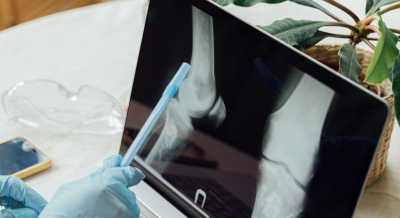New Delhi, 27 June (IANS). Researchers of IIT (BHU) in Uttar Pradesh have achieved a major scientific success. They have created a small, automatic diagnostic device that can recognize bone cancer with great accuracy in the initial stage.
It is the first sensor of its kind, detecting osteopantin (OPN). It is a major biomarker for bone cancer.
The research team led by Dr. Pranjal Chandra of the School of Biochemical Engineering said that the device works without any chemicals, it can be easily taken anywhere anywhere and it is also cheap. He emphasized that this device is very useful for rural health services.
This device acts like a glucose meter and is capable of quick, accurate and immediate detection even under limited resources. The device uses a custom sensor surface made of gold and redox-active nano-fertilizers, making it function similar to glucose meters.
Professor Chandra said that this technique makes it easy to detect cancer and empower primary health centers. This conclusion has been published in the prestigious Journal Nanoscale (Royal Society of Chemistry, UK).
OPN is an important biomarker associated with osteosarcoma, a highly aggressive form of bone cancer. It mainly affects children and adolescents.
Identifying OPN in existing methods is expensive and taking time, but this new device gives faster and correct results with less equipment.
It is designed as an immunosensor without reagent, which enables the spot and affordable investigation. This is especially beneficial in rural and resource-growth areas, where cancer detection is often delayed.
Cancer in India is a major public health concern, whose cases and mortality are increasing drastically.
Director Prof. Amit Patra described it as an excellent example of technology for the common man. He said that it contributes to accurate medical and national health preferences. It is in line with the government’s Make in India and Start-up India initiatives.
Researchers reported that applications have been filed for patent and efforts are underway to convert prototypes into smartphone-compatible diagnostic kits for access to distance healthcare.
-IANS
PSK/ABM






